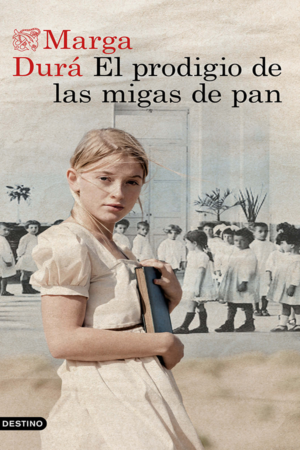El prodigio de las migas de pan / The Prodigy of the Morsels of Bread
The Prodigy of the Morsels of Bread combines an intriguing story line with historical background and describes the times of fundamental changes which connect us to our modern times. The novel is a voyage towards freedom, a reflection on maternity and a portrait of two women, Maria Montessori and her assistant Claudia Caralt who dared to defend their intellect and their dreams.
Rome, 1900. A big, shabby room in a shelter for the poor and the homeless is full of little boys, milling about without any control, often unable even to utter a sound. They are either disabled or abandoned and their supervisors treat them as if they were animals. Suddenly, a boy begins to play with morsels of bread. That attracts the attention of a doctor who has been observing the children and making notes about everything occurring in the room. She is accompanied by a young helper, eager to learn. This is how the great adventure of Maria Montessori and Claudia Caralt, her assistant, begins. Claudia was born in Spain but fate took her to Rome when she was nineteen and found a job in a shelter. There she meets a woman who will change her life, doctor Maria Montessori. From that moment she will follow the Doctor in her efforts to reform the education, will witness the creation of a new teaching method and will stand by her in the most difficult moments in her life. For three decades, they will defy the conventions of the times by advancing a powerful, stimulating and innovative idea: only through education can the world be changed. Dealing with criminals involved in child trade, confronting romantic disenchantments and countering terrible threats will have them travelling from Rome to London to San Francisco and to Barcelona.
In her first novel, El prodigio de las migas de pan, the Barcelona journalist Marga Durá vindicates, the importance of education in a work that covers three decades between the late nineteenth and early twentieth century with the pedagogue Maria Montessori in the background of the plot.
Marga Durá shows a special ability to hook you from the first page in this historical novel that is actually halfway between biography and fiction. Maria Montessori does not appear as a central character in this novel, but she is perfectly documented and is the axis around which the novel is constructed. A flowing and evocative prose, a book that appeals to your emotions. A perfectly drawn plot that envelops you and takes you to a place and a time when the modern world, gender equality and education as a basis for a better world began to be forged.
Claudia Caralt, the fiction protagonist, a loose combination of various assistants of the pedagogue, came to life of her own and carried the author through thrilling plots in which she was confronted with the kidnapping of children, social upheavals and the secrets of her family.


